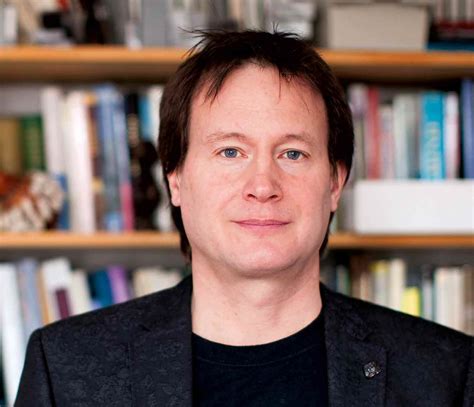Top 14 Fourier Quotes & Sayings
Explore popular Fourier quotes.
Last updated on November 14, 2024.
The vision shared by both [French utopian] Charles Fourier and Robert Owen was for an entire town to fit into one structure. Owen's design for what he called a "parallelogram" was essentially to have a whole city in one building, laid out around a huge quadrangle. Fourier's scheme was to build a massive Versailles-like structure that he called a "phalanstery." In both cases they had these architectural dreams that we now recognize as pretty unappealing.
Or if the hypothesis were offered us of a world in which Messrs. Fourier's and Bellamy's and Morris's Utopias should all be outdone, and millions kept permanently happy on the one simple condition that a certain lost soul on the far-off edge of things should lead a life of lonely torment, what except a specifical and independent sort of emotion can it be which would make us immediately feel, even though an impulse arose within us to clutch at the happiness so offered, how hideous a thing would be its enjoyment when deliberately accepted as the fruit of such a bargain?
The whole aspect of the universe changes with this new conception. The idea of force governing the world, of pre-established law, preconceived harmony, disappears to make room for the harmony that Fourier had caught a glimpse of: the one which results from the disorderly and incoherent movements of numberless hosts of matter, each of which goes its own way and all of which hold each other in equilibrium.
The fatal flaw of most utopian visions is that they're fundamentally static, and that's not a comfortable place for humans to live. Fourier was very good at imagining a utopia that is constantly changing and very busy, but a vision of paradise that would have been most tantalizing to an underfed overworked factory worker in 1840 doesn't have much appeal in fiction because it's not a story.
Margaret Fuller was already a celebrity, travelling around the world. Emerson, who was the axis around which that whole community turned, just didn't like Fourier's ideas very much. He thought it was all too rigid and programmatic. He said, "Fourier had skipped no fact but one, namely life." He thought it was an inhumane system - the day is scheduled too precisely. He didn't think it would work, and he was right.
The mathematical thermology created by Fourier may tempt us to hope that, as he has estimated the temperature of the space in which we move, me may in time ascertain the mean temperature of the heavenly bodies: but I regard this order of facts as for ever excluded from our recognition. We can never learn their internal constitution, nor, in regard to some of them, how heat is absorbed by their atmosphere. We may therefore define Astronomy as the science by which we discover the laws of the geometrical and mechanical phenomena presented by the heavenly bodies.








